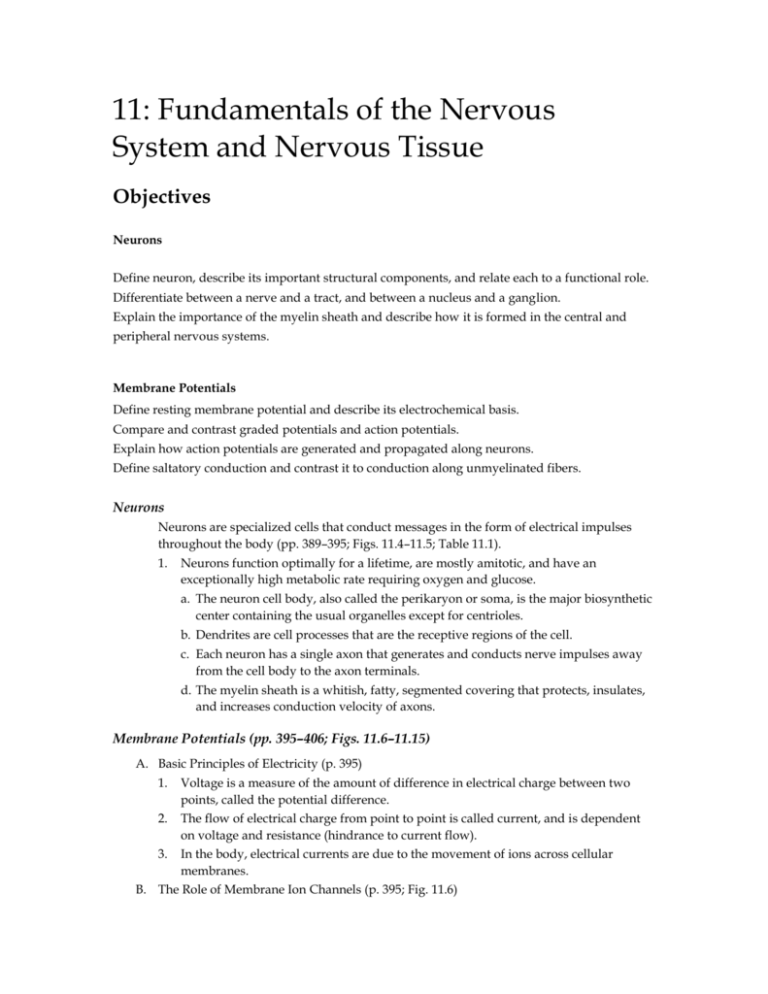Define Resting Membrane Potential and Describe Its Electrochemical Basis
The membrane potential of a neuron is described as the voltage difference between the intercellular and extracellular space in a non-activenon-stimulated neuron. What function does the absolute refractory period serve.

Resting Membrane Potential Action Potential Ppt Download
Provide specific examples of how the 4 essential concepts relative to resting membrane potential.

. Define resting membrane potential and describe its electrochemical basis. Describe structure and function of ascending and descending tracts. Briefly discuss changes to.
Sodium-potassium ion pumps in the membrane pump sodium out of and potassium into the cell. The difference in the number of positively charged potassium ions K inside and outside the cell dominates the resting membrane potential Figure 2. Define resting membrane potential and describe its electrochemical basis.
Dara Byler EXSC 224 Dr. Briefly discuss changes to resting membrane potential. It is known as the action potential and graded membrane potential.
Explain how action potentials are generated and propagated along neurons. Define resting membrane potential and describe its electrochemical basis. Resting membrane potential can be defined as the amount of difference in electrical charge between the ionic makeup of the extracellular fluid and intracellular fluid of a cell.
Define resting membrane potential and describe its electrochemical basis. Leak and mechanically ligand and voltage gated channels. Briefly discuss changes to resting membrane potential.
In most neurons the resting membrane potential equals. Explain how action potentials are generated and propagated along neurons. Identify and describe functions of the spinal cord.
This resting potential is created by a concentration gradient of sodium ions and potassium ions. Since the resting membrane potential of the squid neuron is approximately -65 mV K is the ion that is closest to being in electrochemical equilibrium when the cell is at rest. Explain how action potentials are generated and propagated along neurons.
The resting potential is determined by concentration gradients of ions across the membrane and by membrane permeability to each type of ion. Traditionally the electrical potential difference across a cell membrane is expressed by its value inside the cell relative to the extracellular environment. Define resting membrane potential and describe its electrochemical basis.
Explain how action potentials are generated and propagated along neurons. Provide specific examples of how the 4 essential concepts relative to resting membrane potential or disruption of resting membrane potential. Compare and contrast local and action potentials.
Define resting membrane potential and describe its electrochemical basis-Resting membrane potential. RMP - Degree of the difference of eletrical charge between points. Define resting membrane potential and describe its electrochemical basis.
Define the resting membrane potential and describe its electrochemical basis. Compare and contrast graded and action potentials. Define resting membrane potential and describe its electrochemical basis.
Define resting membrane potential and describe its electrochemical basis. Define absolute and relative refractory periods. If the inside of a cell becomes electronegative ie if the potential difference or the voltage reaches a level higher than that of the resting potential then the membrane or the cell becomes hyperpolarized.
Compare and contrast graded potentials and action potentials. Define saltatory conduction and contrast it to conduction along. Typical value for neuron is -70mV.
Define resting membrane potential and describe its electrochemical basis. RMP - Degree of the di. The resting membrane potential of a cell is defined as the electrical potential difference across the plasma membrane when the cell is in a non-excited state.
Provide specific examples of how the 4 essential concepts relative to resting membrane potential or disruption of resting membrane potential. Briefly discuss changes to. Differences in ionic makeup of ICF and ECF Differential permeability of the plasma membrane Two mechanisms Leakage channels.
Varies from -40 mV to -90mV in different types of neurons. Potential difference across membrane of resting cell Generated by. The membrane is said to be polarized.
ANSWER- Define resting film potential and portray its electrochemical basis. This fact implies that the resting membrane is more permeable to K than to the other ions listed in Table 21 and that this permeability is the source of resting potentials. SPINAL CORD SPINAL NERVES AND SPINAL REFLEXES.
Define resting membrane potential and describe its electrochemical basis. 12 The resting membrane potential is the result of. Thompson 16 May 2016 Assignment 1 1.
The resting membrane potential is a result of different concentrations inside and outside the cell. How does resistance training manage diabetes and decrease cardiovascular risksDefine resting membrane potential and describe its electrochemical basis. Define resting membrane potential and describe its electrochemical basis.
Briefly discuss changes to resting membrane potential. Define resting membrane potential and describe its electrochemical basis. Define absolute and relative refractory periods.
A resting non-signaling neuron has a voltage across its membrane called the resting membrane potential or simply the resting potential. Typically the value for resting membrane potential in a neuron is -70mV meaning the neuron is polarized and the intracellular fluid has a higher concentration of negative ions and is more electrically. Compare and contrast graded and action potentials.
Neurons are specialized cells that transmit messages and receive sensory input. Cetail the importance of the myelin sheath and describe how it is formed in the CNS and PNS. ANSWER- Define resting film potential and portray its electrochemical basis.
A resting membrane potential opposes the specific dynamic electrochemical phenomena in neurons. RMP - Degree of the di. In neurons at rest the membrane potential is called the resting.
The value of the resting membrane.

11 Fundamentals Of The Nervous System And Nervous Tissue
Resting Membrane Potential Physiology Flashcards Draw It To Know It

No comments for "Define Resting Membrane Potential and Describe Its Electrochemical Basis"
Post a Comment